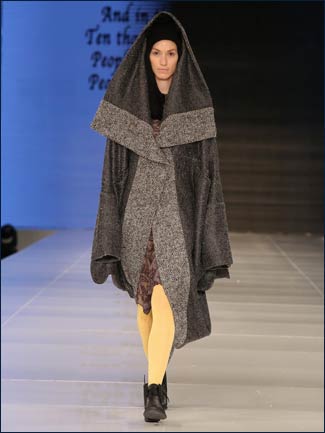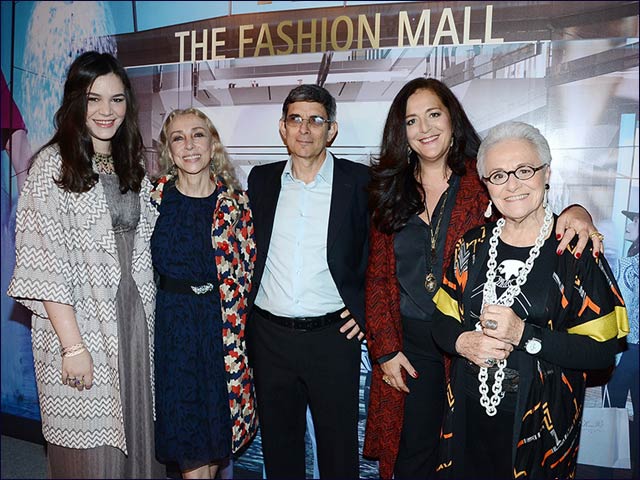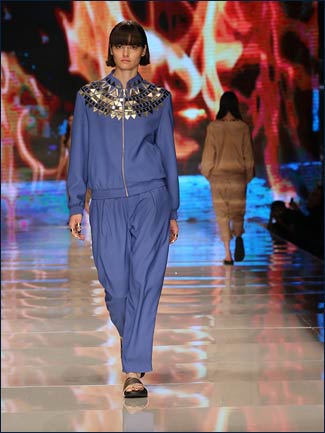By Rivka Borochov
Israelis, typically, are not slaves to fashion. A light cotton dress with flip-flops will do on any summer’s day if you are a woman, or a T-shirt and jeans if you are a guy - even for work or a wedding.
But when Israelis want to be fashionable, they can dress up and design to the nines. Adding in cultural as well as weather relevance, Israel got to show off its fashion flair at the
third Fashion Week Tel Aviv in March 2014, called Gindi TLV Fashion Week.
Fashion Week in Tel Aviv included all the fanfare one would expect in New York, Milan or Paris - with opening and closing parties for the 33 Israeli fashion designers that took part. The event was held in a massive tent - the future location of a planned Fashion Mall.
Over the course of three days there were runway shows by new and established fashion designers including Daniella Lehavi, Sasson Kedem, Raziela, Comme Il Faut and Karen Oberson.
 From Sasson Kedem’s collection. Photo by Avi Valdman
From Sasson Kedem’s collection. Photo by Avi Valdman It was evident how much the informal beach culture influences Israeli fashion design, says Mira Marcus, international press director for the Tel Aviv Municipality.
“It’s easy to see people going to work at their startups wearing flip-flops or even going barefoot. We have 300 days of sunshine in Tel Aviv every year. So that informality translates to what people wear and what they design in Tel Aviv.
“This makes fashion in general in Tel Aviv so informal, leaning toward summer and light clothes year ’round. And this isn’t something new to the fashion scene, but in existence since the beginning of Tel Aviv and its fashion creation,” she explains.
Missoni and Maskit make a splash
“The overall impression was great,” says Marcus. “One of the most established fashion houses in Italy, Missoni, wanted to showcase their clothes on a stage in Tel Aviv. They are like the rock stars of the fashion world.”

Missoni fashion show with Vogue Italia Editor Franca Sozzani, second from left. Marcus notes that many international buyers and members of the press came to cover Fashion Week. With 33 events, and each one attracting about 1,000 people, the impact was very much felt in the city, she says.
The fashion darling of the event was the newly revived Maskit label, which also celebrated the 97th birthday of its founder, Ruth Dayan.
Dayan, the first wife of the late eye-patch-wearing icon Moshe Dayan, started Maskit in 1956 as a fashion and decorative art house to showcase the varied craft traditions of the people making up the population of the new state.
The label often borrowed from Arabian motifs. The idea was to create products with a regional influence, using fine fabrics like silk from Paris.
Maskit closed its doors in 1994, but reopened this year after 20 years of inactivity. The items are affordable, but high-end and well made. The label has a home store in Tel Aviv’s German Colony, where it sells its fashions and displays Maskit memorabilia.

Dorit Bar Or creation. Photo by Avi ValdmanModels on the runway showing off 25 historical Maskit designs included everyday women and some more famous ones - such as wives of prominent Israel politicians - but not professional models.
The bigger mission was to encourage awareness of the Israeli design market, and to show just how innovative it can be.
“Israelis are not just in tune with the world’s fashion trends but are also leading their own fashion trends,” Marcus says.